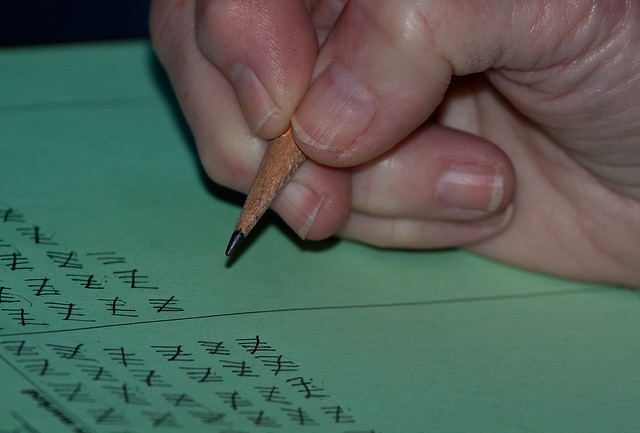Words for order and related words in Celtic languages.
Words marked with a * are reconstructions.
| Old Irish (Goídelc) | ord = order, sequence ordaigidir = to order, ordain |
|---|---|
| Middle Irish (Gaoidhealg) | ord, ordd, ort, órd = order, sequence, arrangement, state, way, course, procedure, degree, rank, dignity, ritual, office ord(d)ad = ordering, arranging ord(d)aigecht = dignity, nobility ord(d)aigid(ir) = to order, ordain, institue, appoint ord(d)aigthe = ordered, ordained, arranged ord(d)an = dignity, honour, pre-eminence |
| Irish (Gaeilge) | ord [əuɾˠd̪ˠ / ɔːɾˠd̪ˠ] = order, sequence, arrangement ordaigh = to order, command, prescribe, ordain, recommend ordaiteach = imperative ordaithe = ordered, stipulated ordan = honour, dignity, rank, pre-eminence ordanáilte = neat, ordered ordú = to order, command ordúil = orderly, neat, ordered ordúilacht = orderliness, neatness, tidiness |
| Scottish Gaelic (Gàidhlig) | òrd [or̪ˠd] = order òrdach [or̪ˠdəx] = orderly, regular òrdachadh [or̪ˠdəxəɣ] = commanding, ordering òrdachail [or̪ˠdəxal] = prescriptive òrdan [or̪ˠdan] = order, statute òrdugh [or̪ˠdu] = order, prescription, command |
| Manx (Gaelg) | oardyr, ordyr = order oardagh = arrangement, array, commission, decree, directive, order, rite, ritual, sequence oardee = to bid, command, order oarderit = ordained, ordered, regulated oardit = appointed, authorized, decreed, ordained, ordered oardoil = orderly, oridinal oardreilys = order, system |
| Proto-Brythonic | *ʉrð = order |
| Middle Welsh (Kymraec) | urd, urdd = holy orders, order urdav, vrdav = to appoint to an honour, duty, or office urdein, urtyein, urtdein, urtein, vrddain = dignified, honourable, praiseworthy urtas, vrdas, urdas = dignity, honour, nobility vrddassav, urddasu, vrddassv = to dignify, honour, venerate vrdasseyd, urdasseid, vrdasseid = dignified, honourable urtassaỼc, urddasog = dignified, honourable, of high rank, noble |
| Welsh (Cymraeg) | urdd [ɨ̞rð / ɪrð] = holy orders, (religious, military, chivalric, taxonomic) order, dignity, honour, discipline, rule, control, manner urddaf, urddo = to appoint to an honour, duty, or office, ordain, crown, dub (knight), honour, elevate, dignify, dedicate urdd(i)ain = dignified, honourable, praiseworthy urddas = dignity, honour, nobility, (high) rank, reputation, status urddasaf, urddasu = to dignify, honour, venerate, revere, elevate, ennoble urddasaidd = dignified, honourable, of high rank, noble, orderly urddasog = dignified, honourable, of high rank, noble |
| Cornish (Kernewek) | urdh = order urdhas = hierarchy urdhya = to initiate urdhyans = initiation |
| Middle Breton (Brezonec) | eurz, urz, vrz = order, arrangement, command |
| Breton (Brezhoneg) | urzh [yrs] = order, right, authorisation urzhad [ˈyrzat] = (biological) order urzhaz = hierarchy urzhiadur = prescription, order, arrangment, ordination urzhiañ [ˈyrzjã] = to order, arrange, organise urzhiataer [yr.zja.ˈtɛːr] = computer |
Etymology: from Latin ōrdō (order, row, series, class, condition, group), from Proto-Italic *ordō (row, order), probably from Proto-Indo-European *h₂or-d-, from *h₂er- (to fit, fix, put together). Words from the same roots include arm, art, harmony, order, ordinary, ornate and reason in English, orden (order) in Spanish and Ordnung (arrangement, regulation) in German [source].
Sources: Wiktionary, Am Faclair Beag, Online Manx Dictionary, Teanglann.ie, eDIL – Electronic Dictionary of the Irish Language, In Dúil Bélrai English – Old Irish glossary, Geiriadur Prifysgol Cymru, Gerlyver Kernewek, Gerlyvyr Cernewec, Lexicon Cornu-britannicum: A Dictionary of the Ancient Celtic Language of Cornwall, Dictionaire Favereau, TermOfis, Le dictionnaire diachronique du breton, Geriafurch, English – ProtoCeltic WordList (PDF), Etymological Dictionary Of Proto Celtic












